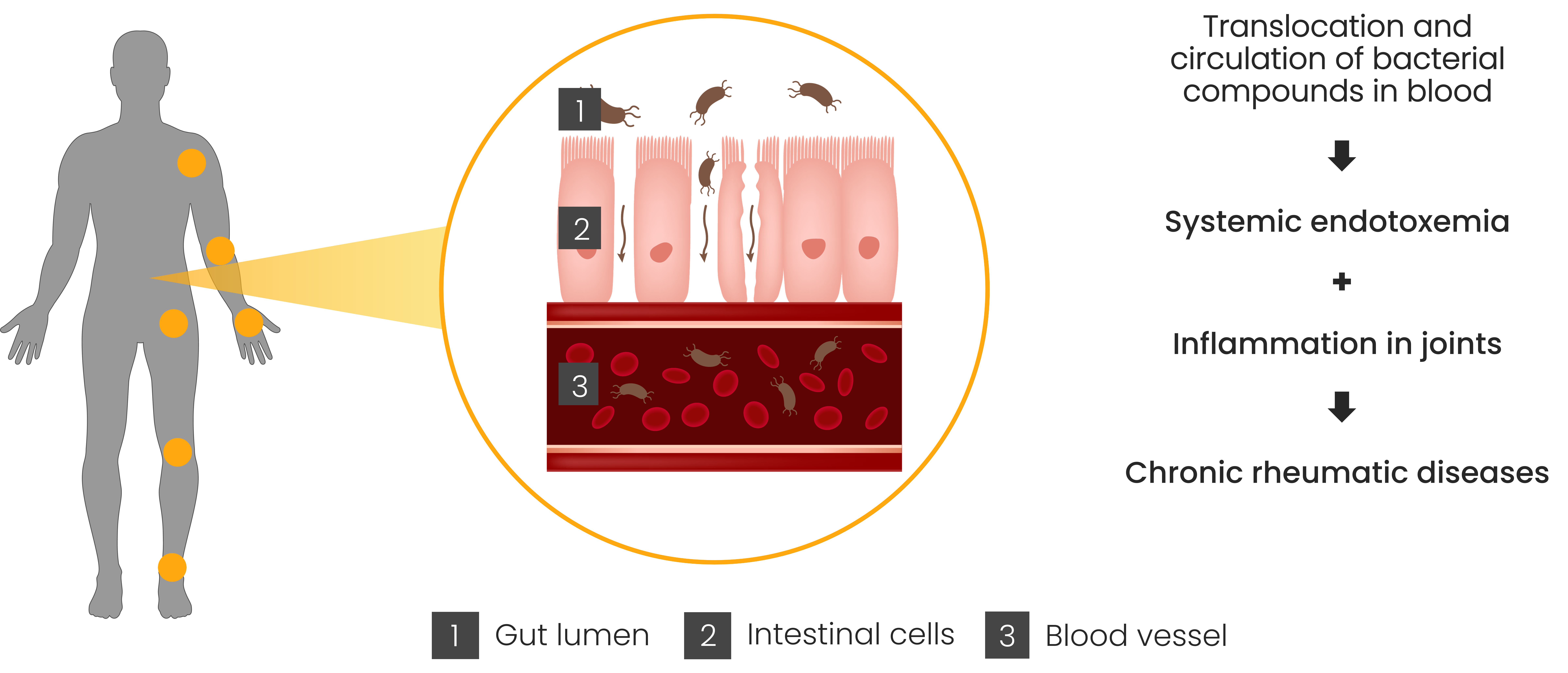Rheumatic diseases (RDs) affect more than 40% of Europe’s population and cause significant disability, pain reduced lifespan and a very high economic burden (~240B€/year due to rheumatic and musculoskeletal disease in Europe). Dysbiosis of intestinal microbiota i.e. deleterious alterations of the composition and/or function of the gut microbiota has been implicated in the pathogenesis of a number of diseases. However, the mechanisms through which intestinal dysbiosis contributes to disease pathogenesis are largely unknown.
Leakage of harmful compounds from intestinal bacteria in particular immunologically highly active bacterial wall lipopolysaccharides (LPS) is a significant source of systemic inflammation posing a high proinflammatory burden on the body. High systemic levels of LPS are referred to as “systemic endotoxemia (SE)”. It is promoted by intestinal dysbiosis, compromised intestinal barrier function and lifestyle factors. Increased gut permeability facilitates the translocation of gut bacteria and specific bacterial structures, which may act as transport vehicles of bacterial effector molecules across the gut-blood-barrier to reach systemic circulation.
This project aims to explore the relationship between gut microbiota, intestinal permeability, and SE. Further it aims to understand their role as drivers of disease onset and disease activity, as well as targets of preventive and therapeutic approaches. Research will be focused on three RDs: osteoarthritis (OA), rheumatoid arthritis (RA), and spondylarthritis (SpA).
For more information see the official website of the European Commission.

